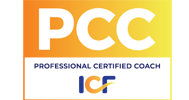
Nadia Prescott
A board is ultimately responsible for the success or failure of an organization. To do their job well, a board must operate under a well articulated plan. This is particularly crucial in an ever changing world where local and world events often impact gift-giving. In the last six months of 2016, we experienced Brexit, a huge corporate move for GE to Massachusetts), Hurricane Matthew and the US election.
In any given year, the potential impact of important and often unexpected events should be factored in when considering how best to plan for your organization’s future financial health. When developing your financial strategy, ask yourself the following questions: How could these types of events impact my organization? Are government funding sources going to
stay the same or decrease as a result? Is my fundraising plan diversified enough? Do I have the right number and mix of board members to address the changing landscape?
Smart businesspeople — and you will have many of them on your board – engage in this type of critical thinking exercise every year. They review comprehensive data expenses, sales trends (fundraising, if you are a nonprofit organization), local and world events and economic conditions from the past year. They use this information to predict reasonable projections for the future. Goal development naturally evolves from this process.
Forward thinking for-profit organizations look for opportunities to take advantage of what is happening around them to further their own mission.
They make strategic business decisions based on current market forces impacting systems, processes and people. For example, they will determine whether their current business environment make it possible to increase sales by 30% over the next year, without adding resources. Or whether it makes more sense to increase revenue by partnering with another organization to increase sales.
You can apply this same methodology even if you are heading up a mission driven non-profit organization. As part of your strategic planning process, you should consider all possible options for best attaining your goals. Should you go it alone, or is it better to evaluate how a partnership or collaboration with another agency that could help you survive? Where will needed funding come from, and is it time to look beyond those strategies you have always relied on?
Identifying the steps you need to take to get what you need for your organization is an important part of the process, and can mean the difference between success and failure. This usually requires assessing and reassessing your goals in the context of what is happening around you, how those events could impact your strategy, and how best to adapt to your reality.
Rely on your team to help guide you. Not only will their feedback help you, it will help them feel more ownership in the organization’s future as well. Carefully evaluate what you learned from last year’s achievements, disappointments and failures, and use this knowledge to develop appropriate plans and expectations for this year.
Whatever your goals are, be very clear as a team (board and staff) about what you are willing and unwilling to do. It’s ok to say no – in fact – sometimes it’s very important to set limits so that you can focus on what is takes to sustain your organization’s mission.
Focus on developing realistic goals that are attainable and that will support your organization’s overall mission. Be bold, but be realistic.
For further information on board advances (we move forward at Emerging Executive and focus on the future!) or real-time strategic planning processes, contact us at info@emergingexecutive.com



